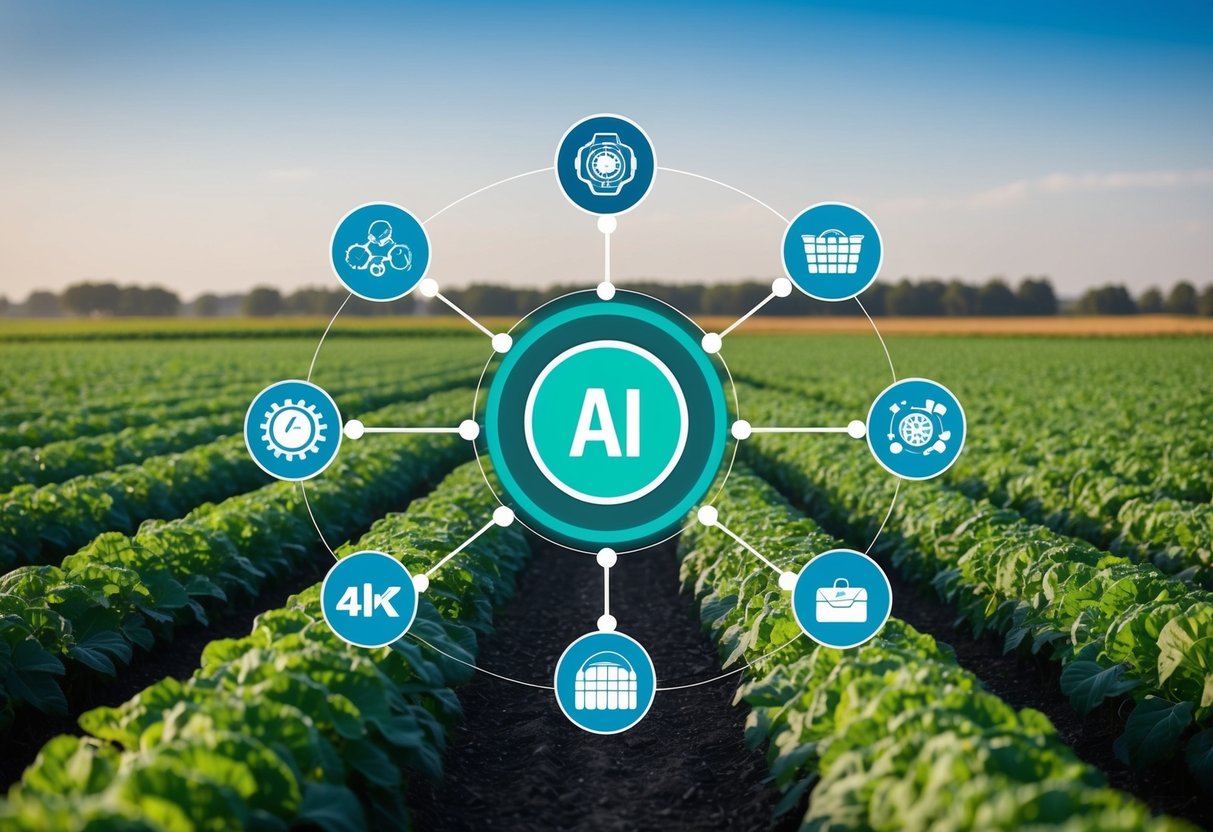
Innovative Technologies and Their Impact on Food Availability
Emerging technologies such as robotics and cloud computing are reshaping food availability through improved efficiency and data management. These technologies enhance harvesting and agricultural practices, leading to better crop yields and resource optimization.
Robotics and Automation in Harvesting
Robotics play a crucial role in increasing agricultural productivity by automating harvesting processes. Machines equipped with sensors and AI can assess ripeness and quality, ensuring optimal picking. This automation reduces labor costs and helps in overcoming worker shortages, making harvesting more reliable.
Robotic systems are especially beneficial for delicate crops. They perform tasks like picking and sorting swiftly without damaging produce. Enhanced robotic utilization ensures that food reaches markets quicker, reducing waste and maintaining freshness, thus positively impacting food availability.
Cloud Computing for Agricultural Data Management
Cloud computing enables efficient data management, offering farmers insights into crop health, weather patterns, and soil conditions. By analyzing vast datasets, farmers can make informed decisions, optimizing resource allocation and improving yield outcomes.
Access to real-time data through cloud platforms leads to better planning and precision farming. Farmers can track and manage their resources effectively, increasing the availability of food. This digital transformation in agriculture ensures transparency, aiding in forecasting and addressing potential supply chain disruptions.
Consumer-Focused AI: Personalization and Nutrition
AI is transforming the way consumers interact with their food choices, especially in the realm of personalized nutrition. Through advanced algorithms, AI systems can analyze individual dietary needs and preferences. This enables tailored meal plans that cater to specific lifestyle and health requirements.
Incorporating data from food science, AI assesses nutritional value, dietary restrictions, and personal goals. Consumers increasingly demand transparency and health-focused options, and AI-driven platforms can provide insights into ingredient provenance and nutritional content.
Mapping out daily meals or weekly menus according to personalized nutrition profiles is becoming more common. Consumers benefit from AI’s ability to recommend foods that optimize nutrition while considering factors such as food allergies and intolerances. These customized experiences enhance consumer satisfaction and encourage healthier eating habits.
AI systems also track dietary patterns over time, offering actionable insights and improvements. Technology supports a more engaged consumer, who is informed about their nutrition intake and can make evidence-based choices. In doing so, AI fosters a more conscious and health-focused community.
Furthermore, the integration of AI in nutrition assists not only individuals but also larger entities like restaurants and food companies. By aligning products with consumer health trends, businesses can innovate and adapt to modern demands, leading to a more dynamic and responsive food industry landscape.